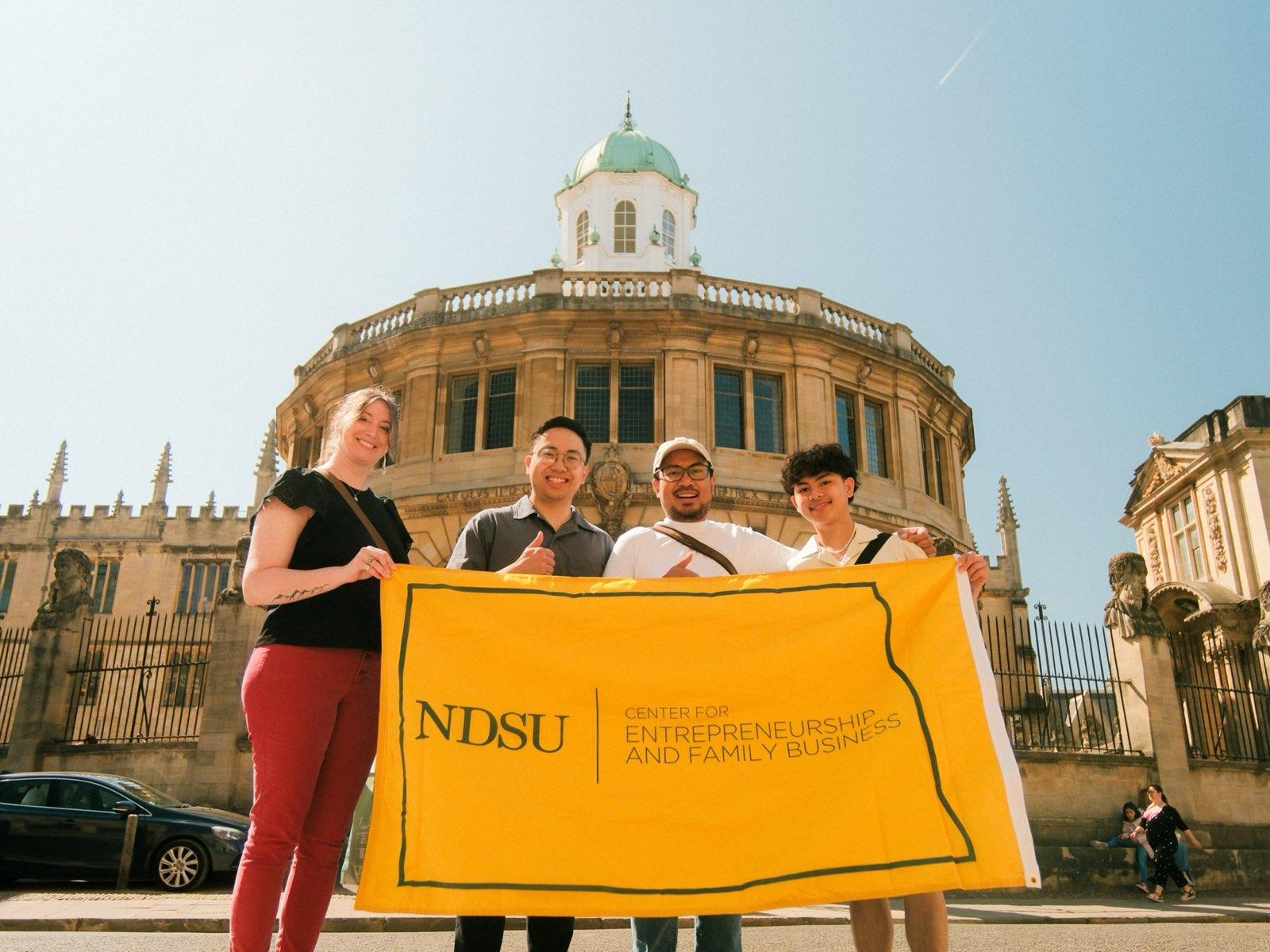
A team of NDSU students recently returned from Oxford, England, where they represented NDSU at the global finals of Map the System, an international competition focused on systems thinking and social innovation.
Their journey began with their participation in The Center for Entrepreneurship and Family Business’s Problems to Possibilities program, a year-long curriculum to develop their project, and then a win at NDSU’s Possibility Showcase this past spring. That victory earned them the opportunity to present their research to a global audience.
Marcel Roy Domalanta and Mark Rigel Ali, both doctoral students in coatings and polymeric materials, along with Xyle André Altura, a student in strategic communications, presented their project titled, “Saving Science: Why PhD Students Quit?” an exploration of the systemic challenges faced by doctoral students, particularly those who leave academia not due to lack of talent, but lack of support.
Through Problems to Possibilities, students learned to reframe complex challenges using systems thinking, an approach that reveals how interconnected causes and consequences shape outcomes and help entrepreneurs understand how different elements of their ventures interact to make smarter decisions, solve problems more effectively and drive innovation.
“Systems thinking taught me to step into the shoes of those most affected,” Domalanta said. “It’s not about fixing a single part. It’s about seeing the whole.” While the team didn’t move on to the final round, they earned international recognition for Excellence in Storytelling, an honor awarded to only five teams out of forty.
Mentorship played a pivotal role in shaping the team’s work. Onnolee Nordstrom, President Jim Ozbun Chair of Entrepreneurship and Jennifer Schillinger, P2P Program Coordinator, advised them throughout the year.
“Our mentors did not just guide us,” Domalanta said. “They expanded our perspective until we could see more paths forward than we thought possible.”
Beyond the competition, the team immersed themselves in the rich academic heritage of Oxford.
“Walking through the Bodleian, Christ Church and the Divinity School felt like living a chapter out of Harry Potter,” Domalanta said.
The team’s work doesn’t end in Oxford. They’ve opened conversations with the National Academies of Sciences and are exploring opportunities to publish their findings. To fellow students considering the Problems to Possibilities program, Domalanta offers this advice: “Go all in and be purposeful. No one changes the world by following its rules. Every insight and every connection has the power to shift the system, if you’re brave enough to let it.”
